
19 Jul 2022
2022 World Rowing Cup Series: A Review by boat class
Following the conclusion of the 2022 World Rowing Cup Series, we take a look back across the World Rowing Cup boat classes to see how each nation performed. This season, the three World Rowing Cups were staged in Belgrade, Poznan and Lucerne. Some nations attended all three, others attended just one. In many of the boat classes, the final ranking was still all to play for in Lucerne.
In each World Rowing Cup boat class, the highest placing boat from a country is awarded the following points which adds up towards the overall World Rowing Cup winning nation:
1st – 8 pts, 2nd – 6 pts, 3rd – 5 pts, 4th – 4 pts, 5th – 3 pts, 6th – 2 pts, 7th – 1 pt
Women’s Pair (W2-)
World Rowing Cup Series Winner: Great Britain
New Zealand’s reigning Olympic Champions in this boat class, Grace Prendergast and Kerri Williams (nee Gowler) raced only in Lucerne this season, after spending the year of opposite sides of the globe. They took gold but only 0.11 second ahead Romania. Meanwhile, Great Britain’s Emily Ford and Esme Booth took gold in Belgrade and followed-up with a bronze in Lucerne to put them at the top of the final standings, although they were level on points with the Netherlands. The Netherlands had three boats in the A-Final in Belgrade and, in Poznan, Ymkje Clevering and Veronique Meester took gold in this boat class.
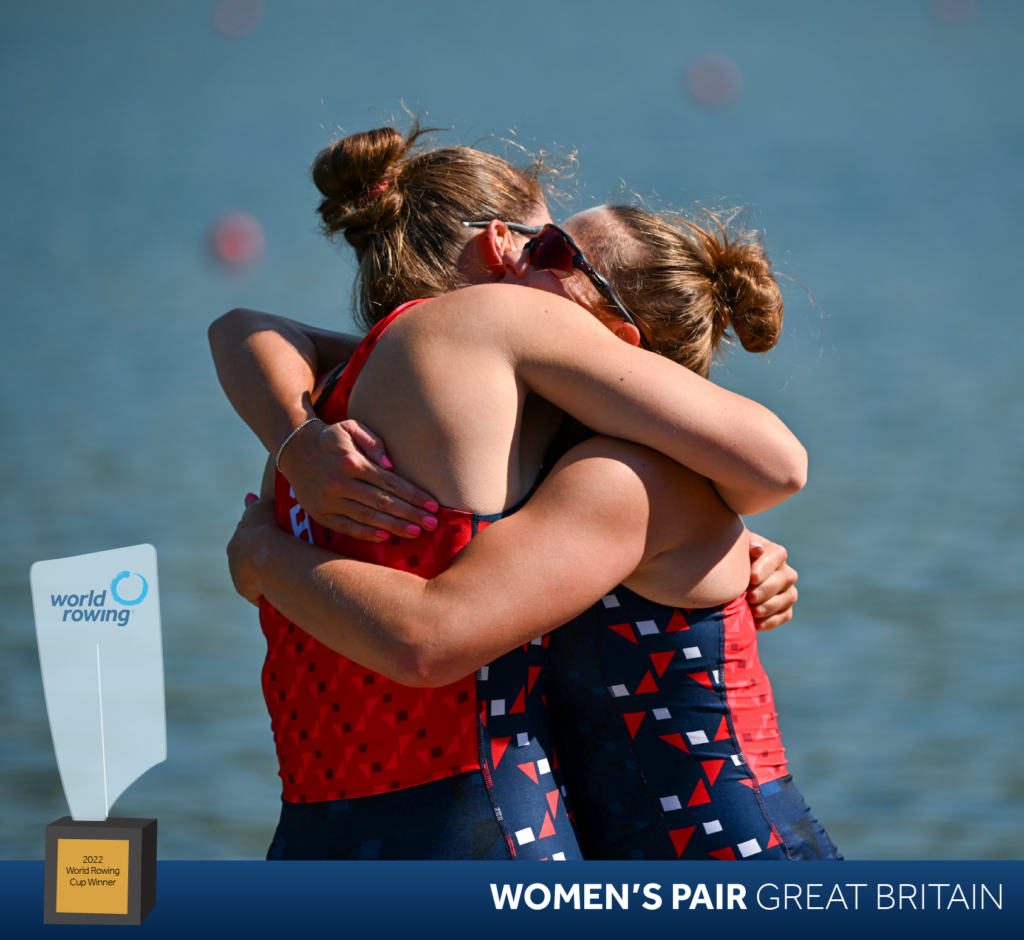
Men’s Pair (M2-)
World Rowing Cup Series Winner: Great Britain
The impressive new British line-up of Ollie Wynne-Griffith and Tom George started the season in Belgrade as “Great Britain2” and took gold. By the time of Lucerne, they had become “Great Britain1”, and took gold once again. New Zealand also has an impressive new line-up, Matt Macdonald and Tom Mackintosh; they took gold at World Rowing Cup II in Poznan and were expected to be the biggest threat to Great Britain in Lucerne, but fell just short, and it was Australia and Serbia that took the other two podium places. This will certainly be an interesting boat class to watch develop.
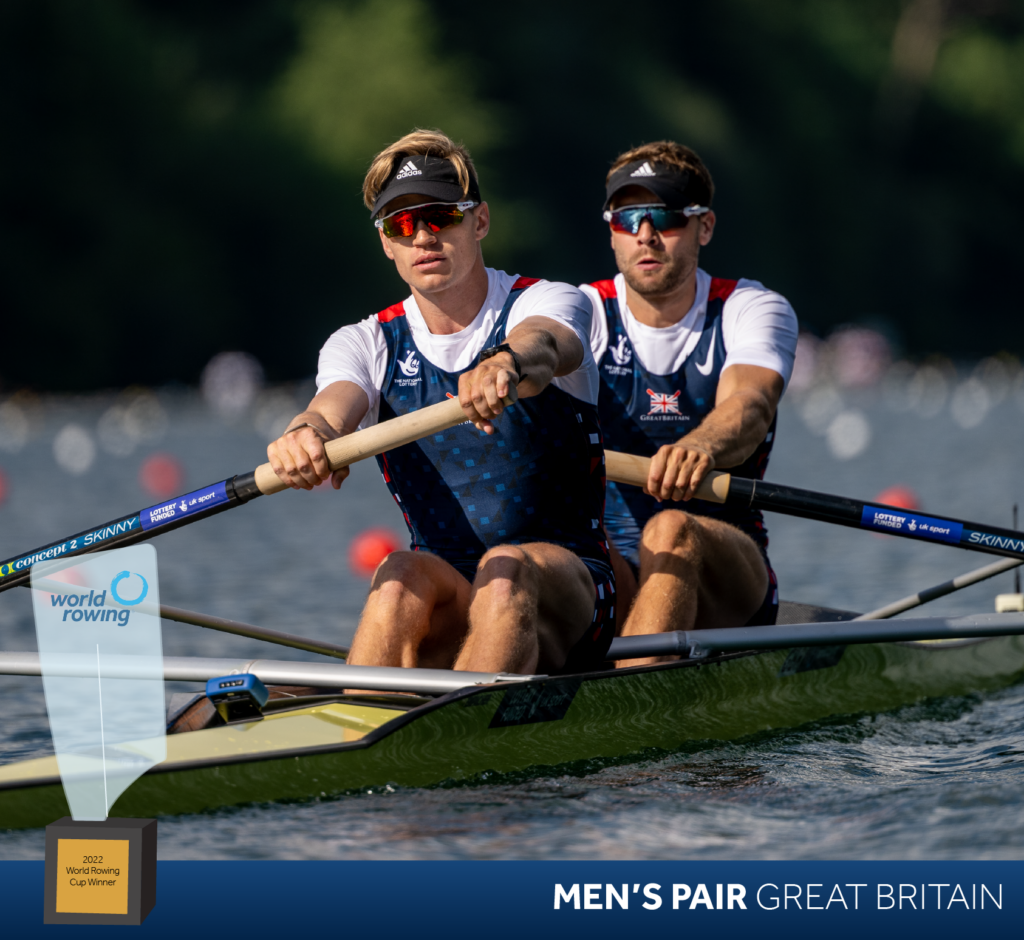
Women’s Double Sculls (W2x)
World Rowing Cup Series Winner: Netherlands
The Netherlands was the outstanding nation in this boat class finishing comfortably at the top of the final standings. Roos De Jong and Laila Youssifou won gold medals in both Belgrade and Poznan, finishing with clear water ahead of Ireland at World Rowing Cup II. There was no Netherlands entry in Lucerne, which allowed the reigning Olympic Champions Ancuta Bodnar and Simona Radis of Romania to dominate the final and take the gold medal. Great Britain was still experimenting with line-ups in Belgrade and took silver and bronze. Lithuania was also impressive in this boat class, making the final in both Belgrade and Lucerne (they did not race in Poznan), and winning bronze in Lucerne.
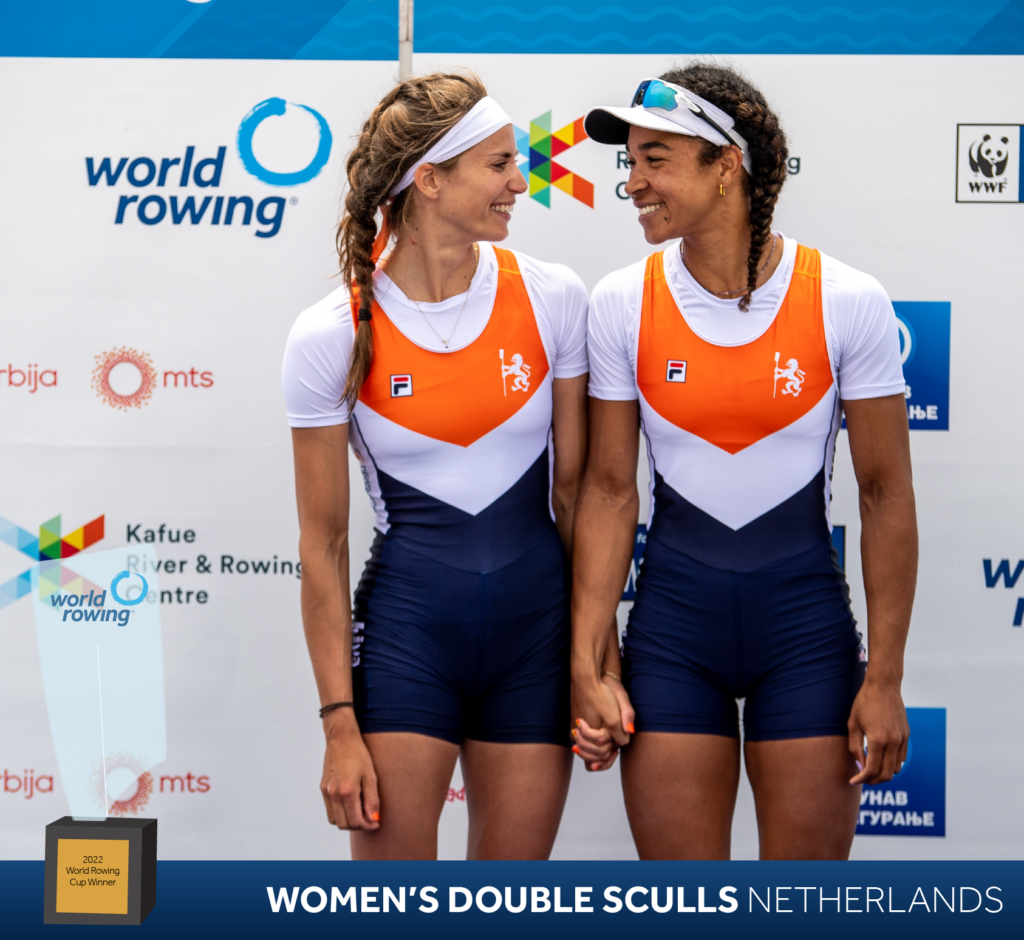
Men’s Double Sculls (M2x)
World Rowing Cup Series Winner: Croatia
Martin and Valent Sinkovic of Croatia had moved back into the double sculls this season after dominating the coxless pair for the previous olympiad. It was clear from the outset that they were able to manage the transition, and they won gold at all three World Rowing Cups. Poland’s Miroslaw Zietarski and Fabian Baranski tool silver in both Belgrade and Poznan and, the Polish prioritizing their men’s quadruple sculls, moved into that boat class for the third World Rowing Cup. Australia entered the second and third World Rowing Cups and, in an unusual turn of events, tied for the bronze medal with the Netherlands in Poznan. The Australian line-up was changed for Lucerne and David Bartholot was moved into the boat to join Caleb Antill – the duo took the silver medal.
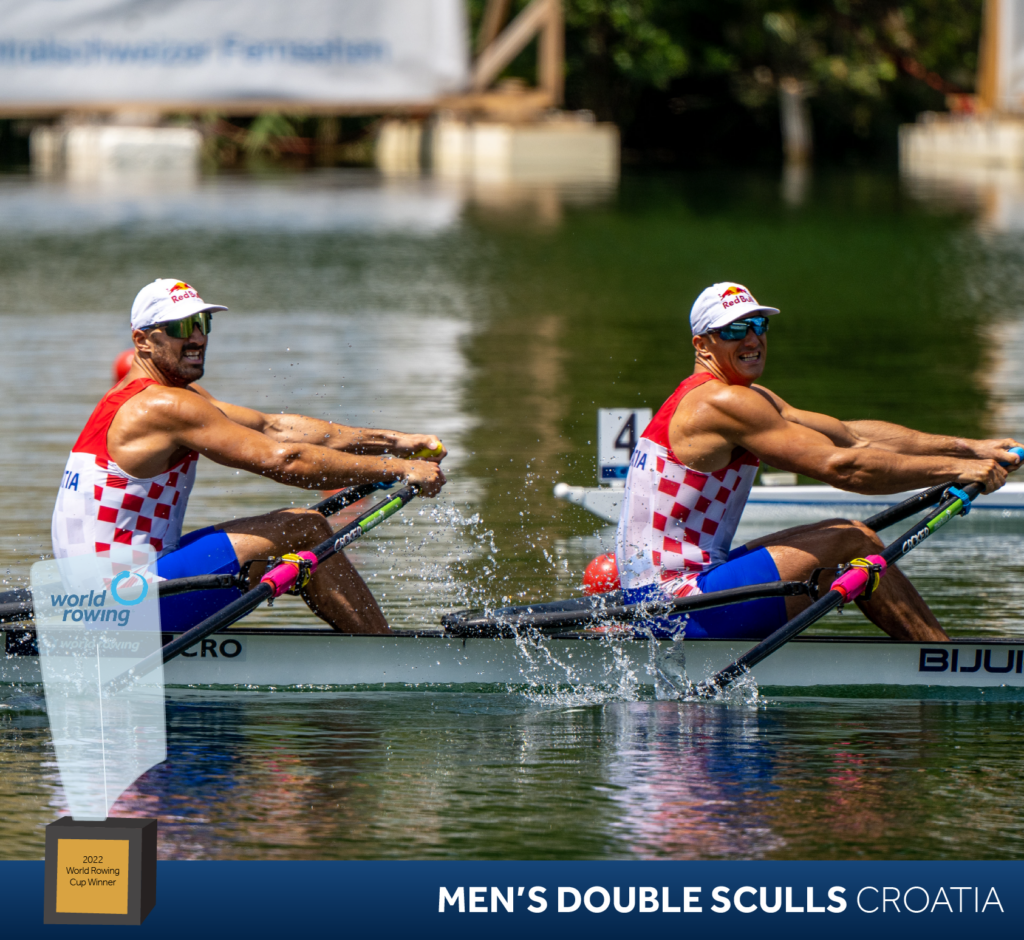
Women’s Four (W4-)
World Rowing Cup Series Winner: Great Britain
Great Britain may have had a point to prove in this boat class. They started the season with a win of over eight seconds in Belgrade and ended the season with a six-second win, setting a new World Rowing Cup Best Time of 6:18.64 in Lucerne. While Great Britain was missing in Poznan, Australia took the gold medal position; the crew featuring Annabelle McIntyre and Lucy Stephan, who won gold in this boat class at the Tokyo Olympic Games last year. Australia had to pull out from this boat class in Lucerne just ahead of the competition. The silver and bronze medals at the three World Rowing Cups were spread across six further nations with Denmark, China, Netherlands, Ireland, Romania and New Zealand all making an appearance on the podium.
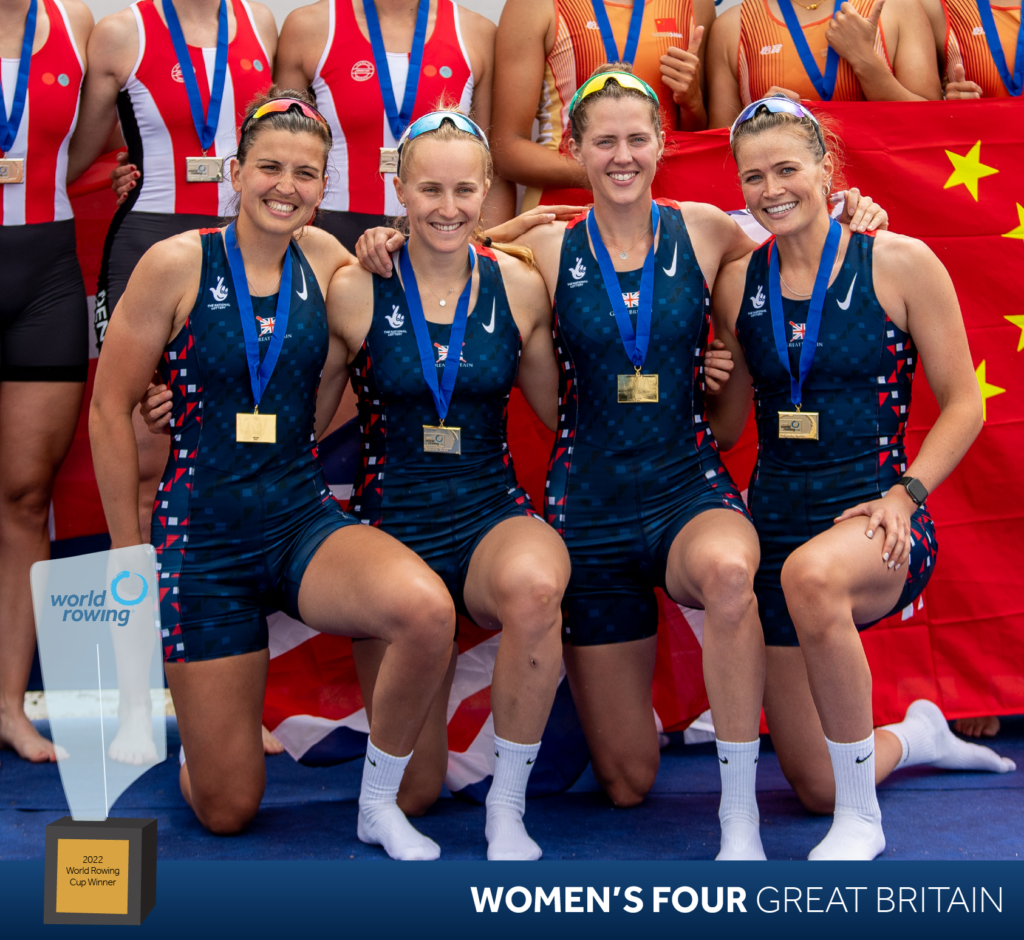
Men’s Four (M4-)
World Rowing Cup Series Winner: Great Britain
After their disappointment in Tokyo, Great Britain had a new, young line-up in this boat class which has been part of their “Project Paris” initiative. The crew made its mark at World Rowing Cup I in Belgrade where they won gold. Great Britain didn’t enter World Rowing Cup II and there, in Poznan, Australia took gold, with a time a couple of seconds quicker than the Brits had posted in Belgrade. It would be all to play for in Lucerne. The crews had raced against each other the week before at Henley Royal Regatta where the Australians had won by just 1 foot. In Lucerne, whilst the Australians had the fastest start, Great Britain worked their way through and took the gold by over two seconds. The Netherlands were consistent in this boat class, taking silver in both Belgrade and Poznan, but they did not race in Lucerne.
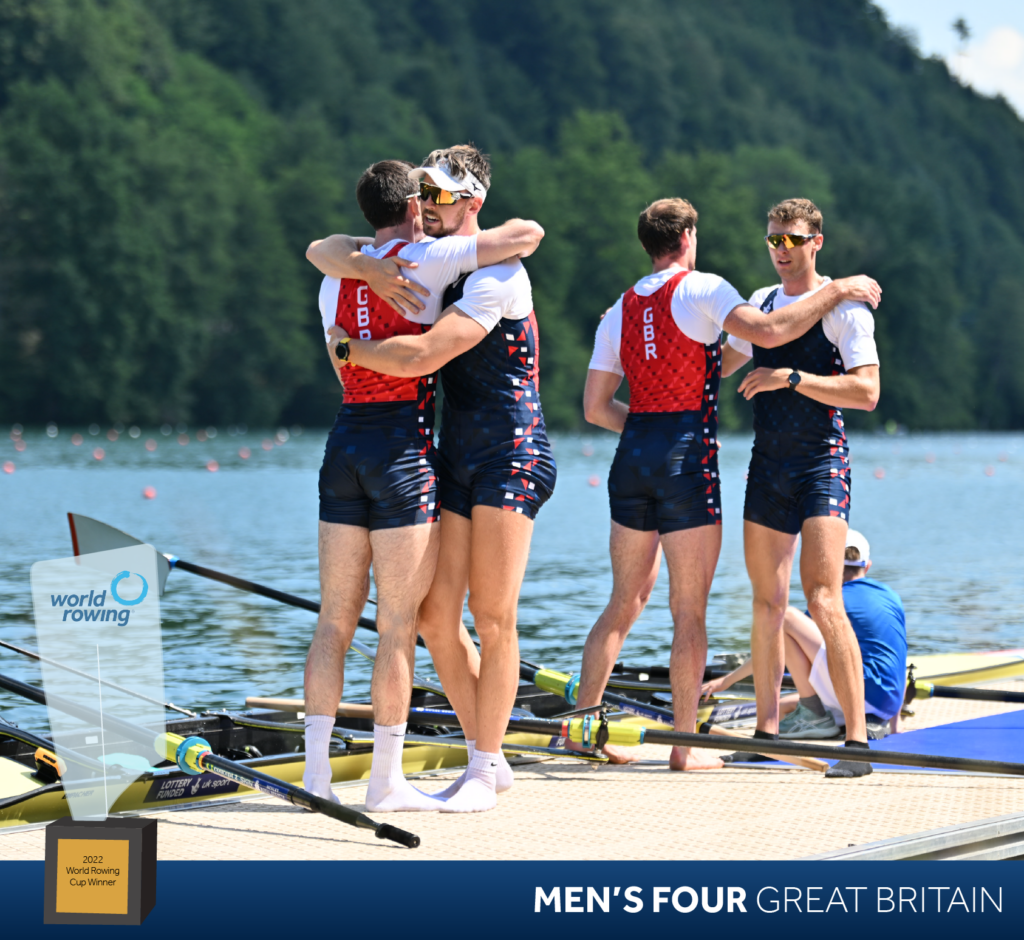
Women’s Single Sculls (W1x)
World Rowing Cup Series Winner: Netherlands
Dutch sculler and July 2022 Rower of the Month Karolien Florijn had comfortable wins in both Belgrade and Poznan. Her two golds (winning eight points each time) was enough to put the Netherlands comfortably at the top of the rankings, even before World Rowing Cup III in Lucerne began. Switzerland’s Jeanine Gmelin took silver in Poznan and bronze on her home turf in Lucerne. She was leading the final at 1500m in Lucerne when the young German sculler Alexandra Foester appeared to come from nowhere, and took gold. Foester, who took gold at last year’s World Rowing U23 Championships and is a multiple time World Rowing Indoor Champion, will certainly be one to keep an eye on. Australia’s Tara Rigney, who competed in the double sculls in Tokyo, came away with bronze in Poznan and silver in Lucerne. China was also impressive in this boat class, making the final at all three World Rowing Cups, and taking silver in Belgrade. The other medals and points were well-shared across many other nations with some new faces making the finals.
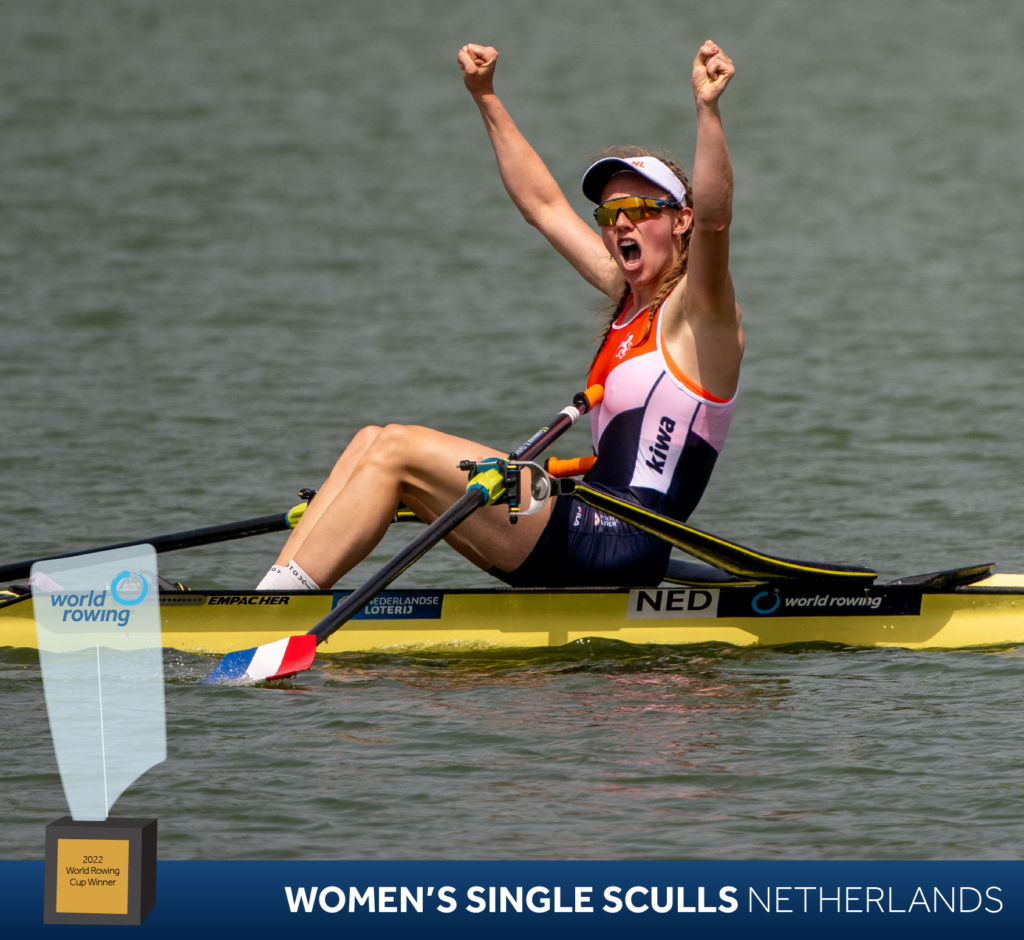
Men’s Single Sculls (M1x)
World Rowing Cup Series Winner: Netherlands
Although the Netherlands were the overall winner, the gold medals at the three World Rowing Cups were won by Germany, the Netherlands and Great Britain respectively. Germany’s Oliver Zeidler was victorious at World Rowing Cup I with Dutch sculler Melvin Twellaar taking silver, and Great Britain’s Graeme Thomas the bronze. These were clearly the three scullers to watch as Twellaar took gold in Poznan and Thomas gold in Lucerne. Bulgaria’s Kristian Vasilev made the final in both the first and last World Rowing Cups, winning silver in Lucerne.
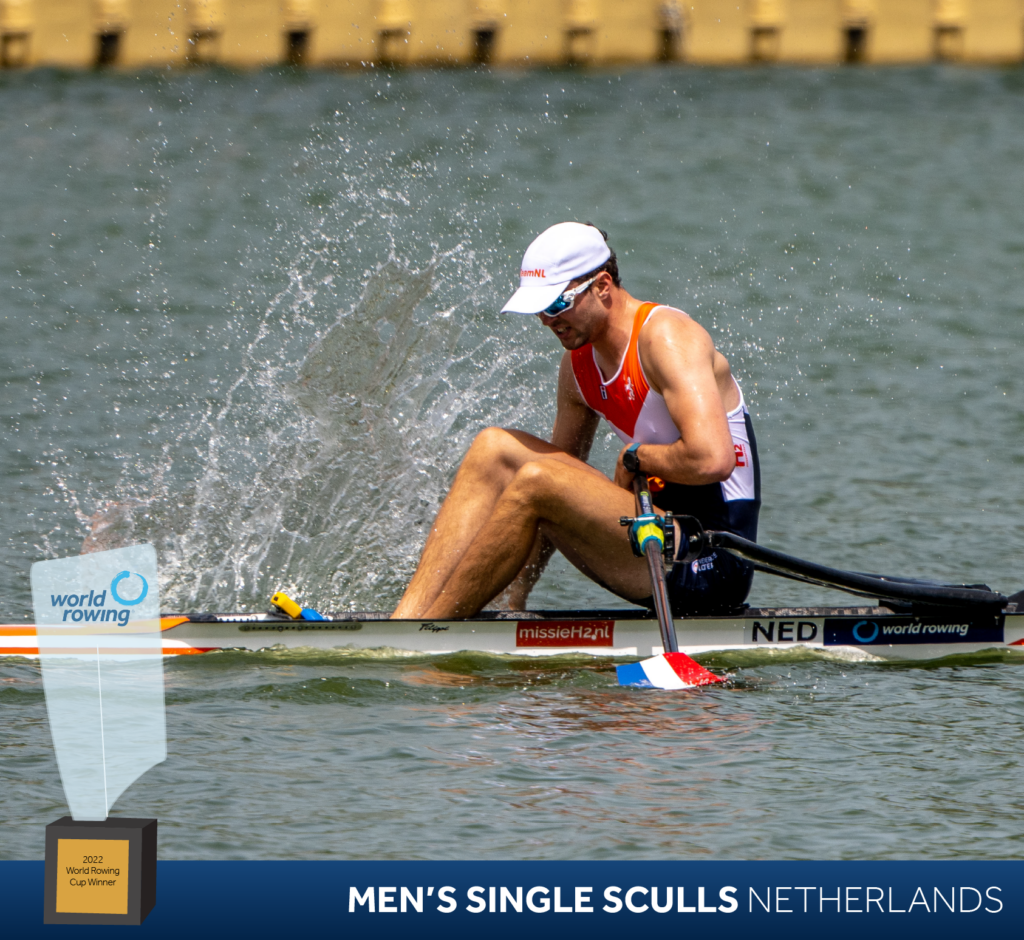
Lightweight Women’s Double Sculls (LW2x)
World Rowing Cup Series Winner: Great Britain
Emily Craig and Maddie Arlett of Great Britain were a dominating force in this boat class, winning gold at both events they entered; Belgrade and Lucerne. It was particularly impressive in Lucerne when they finished ahead of the reigning Olympic gold and silver medalists, Italy and France, who finished third and second respectively. In Poznan, Mary Reckford and Michelle Sechser from the USA took the gold medal. China was close behind Great Britain on points, having taken silver in Belgrade, and finished fourth in Poznan and Lucerne. Poland was also impressive in this boat class, with two crews making the final in both Belgrade and Lucerne.
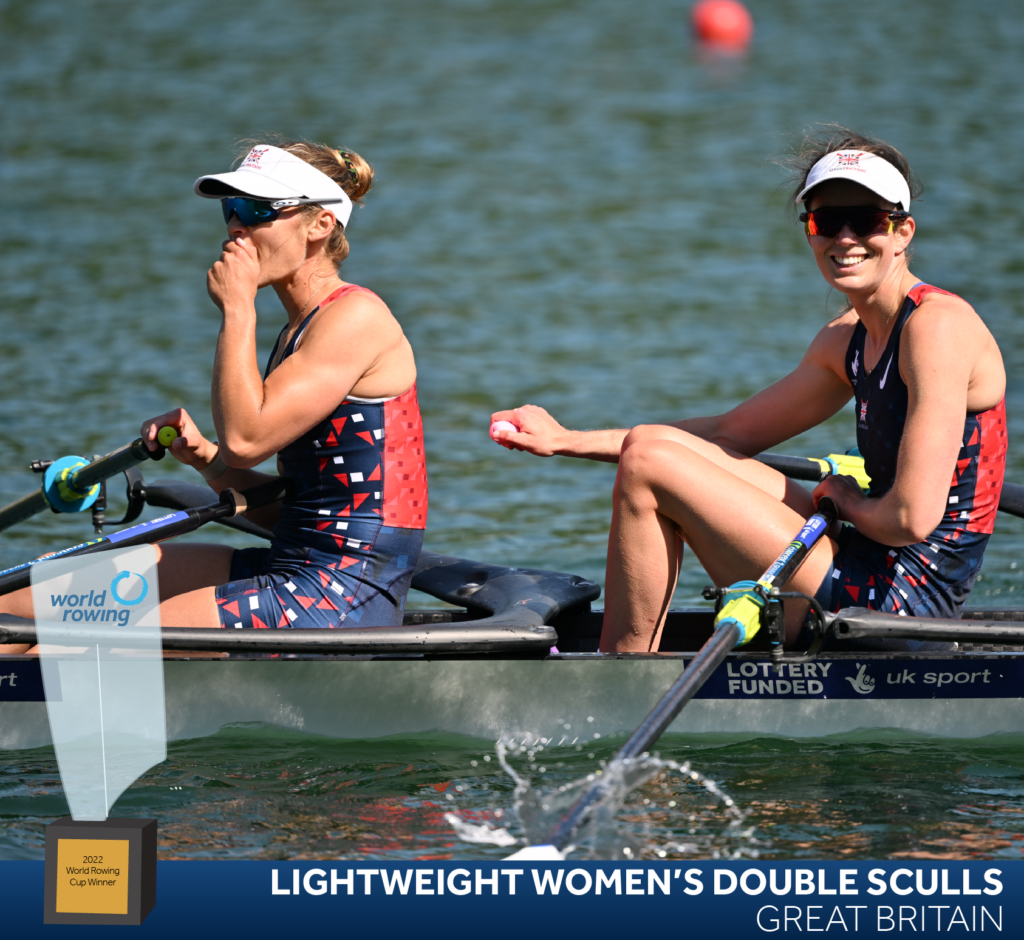
Lightweight Men’s Double Sculls (LM2x)
World Rowing Cup Series Winner: Switzerland
Switzerland was in the A-Final of this boat class at all three World Rowing Cups this season with Jan Schaeuble and Raphael Ahumada Ireland taking gold in Belgrade and bronze in Poznan. A slightly different formation raced in Lucerne, and finished fifth. Italy was very impressive in Lucerne, taking gold and silver, ahead of Lars Benske and Ask Jarl Tjoem, who had previously won gold in Poznan. France’s Hugo Beurey and Ferdinand Ludwig took silver in Poznan and finished fourth in Lucerne so are certainly a line-up to keep an eye on going forward.
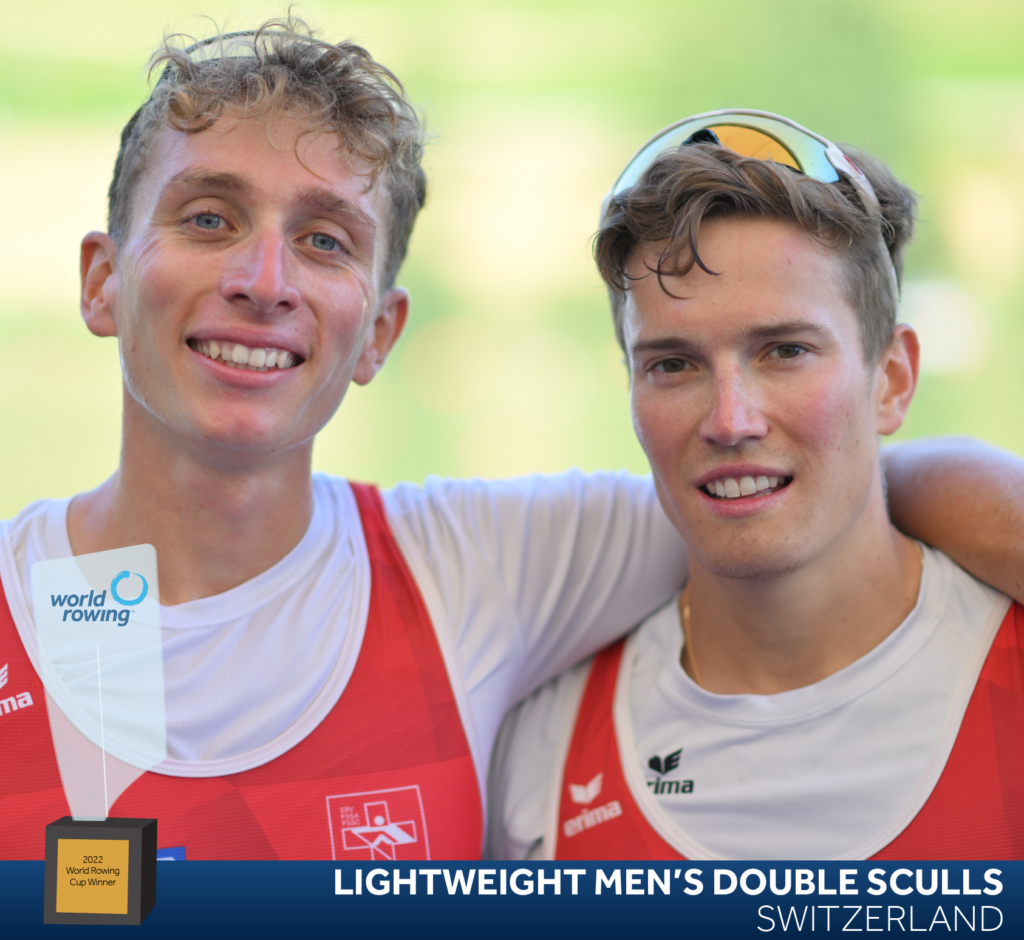
Women’s Quadruple Sculls (W4x)
World Rowing Cup Series Winner: China
This boat class was absolutely dominated by China, who won 22 points out of a maximum of 24; they won gold at both the second and third World Rowing Cups. At the first of the season, in Belgrade, they had to settle for silver where they were beaten by the Netherlands by 0.2 seconds. With a new line-up this year, Great Britain placed fourth in Belgrade, and took silver in Lucerne.
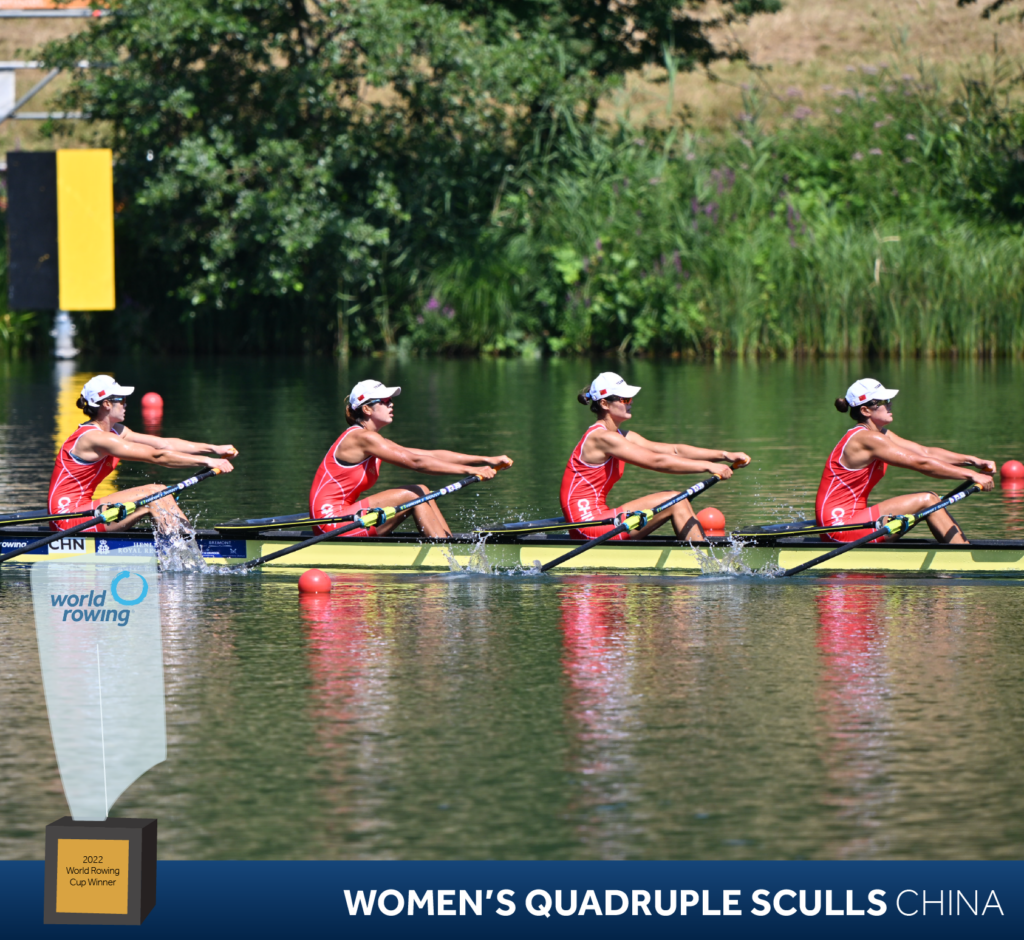
Men’s Quadruple Sculls (M4x)
World Rowing Cup Series Winner: China
Although China dominated the women’s quadruple sculls, they finished top of the men’s standings, but not by as much. They were just two points ahead of Poland. China won gold in Belgrade and Poznan, and Poland won gold in Lucerne. China appeared to be slightly off the pace in Lucerne, where they finished sixth. The other medals were well spread out across the three World Rowing Cups with the Netherlands, Lithuania, Estonia, Italy and Romania all having a share of the hardware this season.
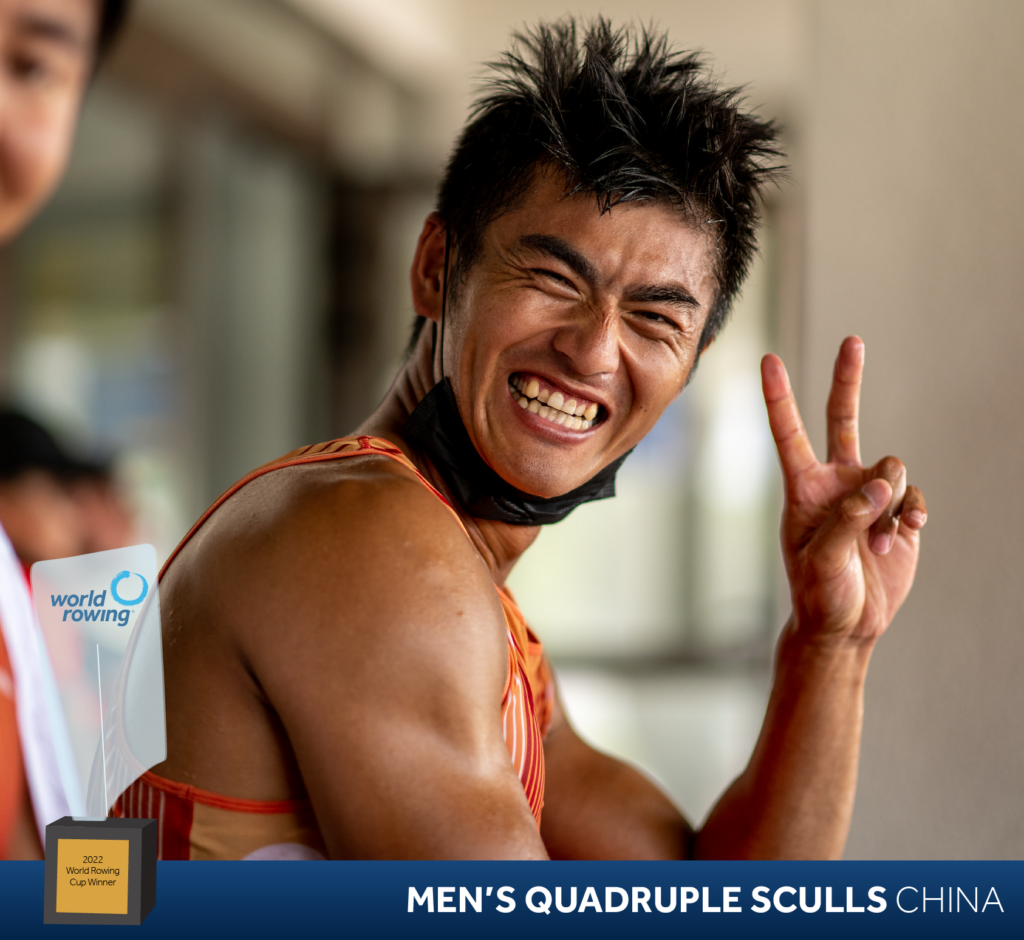
Women’s Eight (W8+)
World Rowing Cup Series Winner: Netherlands
The Netherlands took comfortable wins in both Belgrade and Poznan, banking them 16 points and a fairly comfortable position at the top of the rankings. They didn’t race in Lucerne. Meanwhile, the relatively new line-up from Australia took bronze in Poznan and then gold in Lucerne.
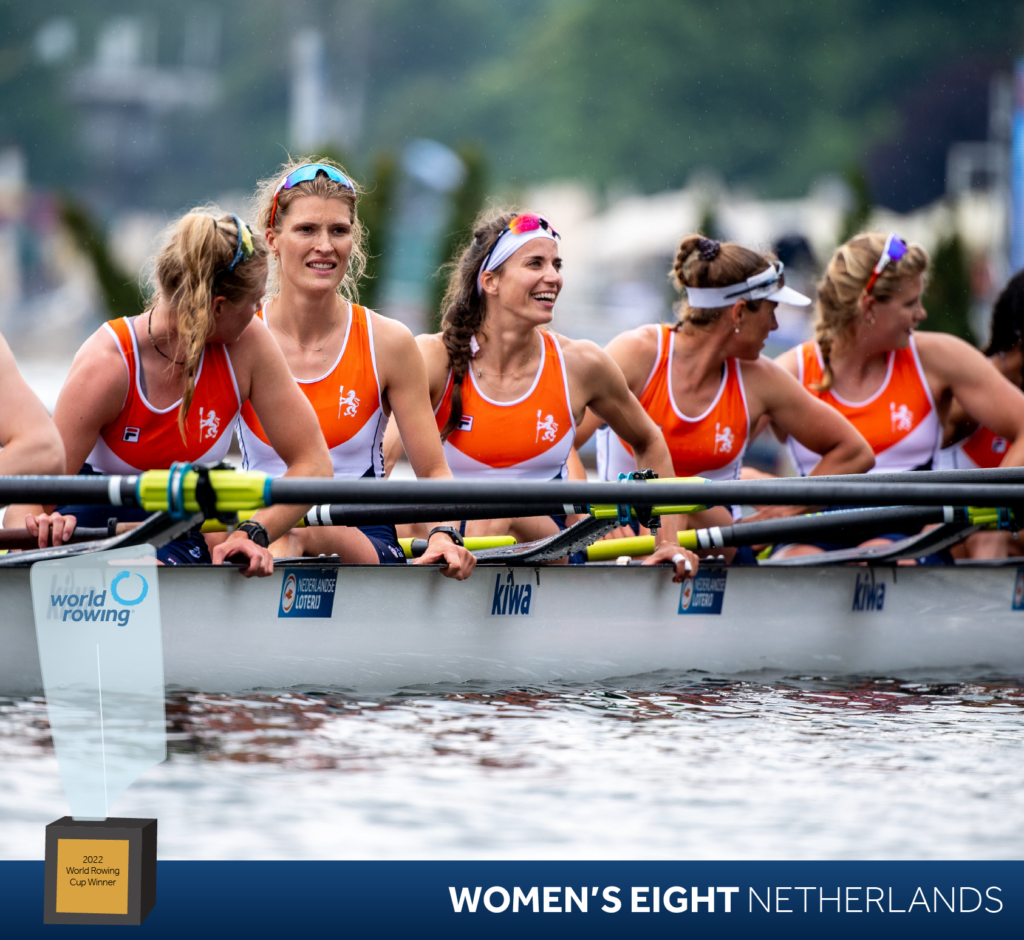
Men’s Eight (M8+)
World Rowing Cup Series Winner: Great Britain
This is always an exciting boat class to follow, but it is clear that Great Britain is on a mission this season. There were only three entries in Belgrade, but the Brits stamped their authority with a win by over ten seconds ahead of the Netherlands. In Poznan, where Great Britain was not racing, Germany took the top position, ahead of Australia. At the last World Rowing Cup, in Lucerne, it was a dominating performance from Great Britain where they opened up clear water by the finish line to take the gold ahead of Australia. Germany was very nearly pushed out of the medal zone by Romania.
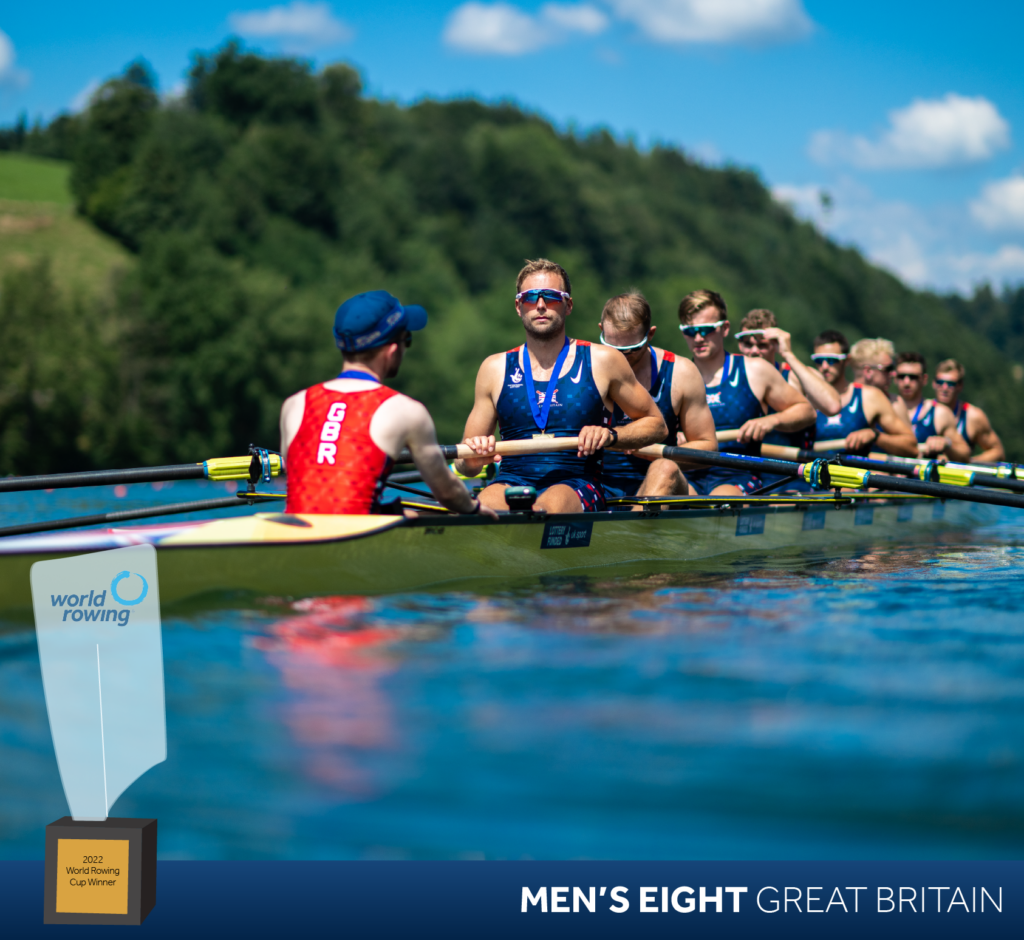
Overall Standings
The Netherlands took away the overall title for the 2022 World Rowing Cup Series, with a total of 141 points (68 of which were earned in Belgrade, 72 in Poznan, and one in Lucerne). Great Britain followed closely with 135 points (73 from Belgrade, and 62 from Lucerne), with China in third (47 from Belgrade, 34 from Poznan, 25 from Lucerne).
Overall, 35 nations of the 56 that participated were on the points table. A total of nine nations earned points at all three World Rowing Cups: the Netherlands, China, Poland, Germany, Switzerland, Croatia, Czech Republic, Ukraine, and Bulgaria.
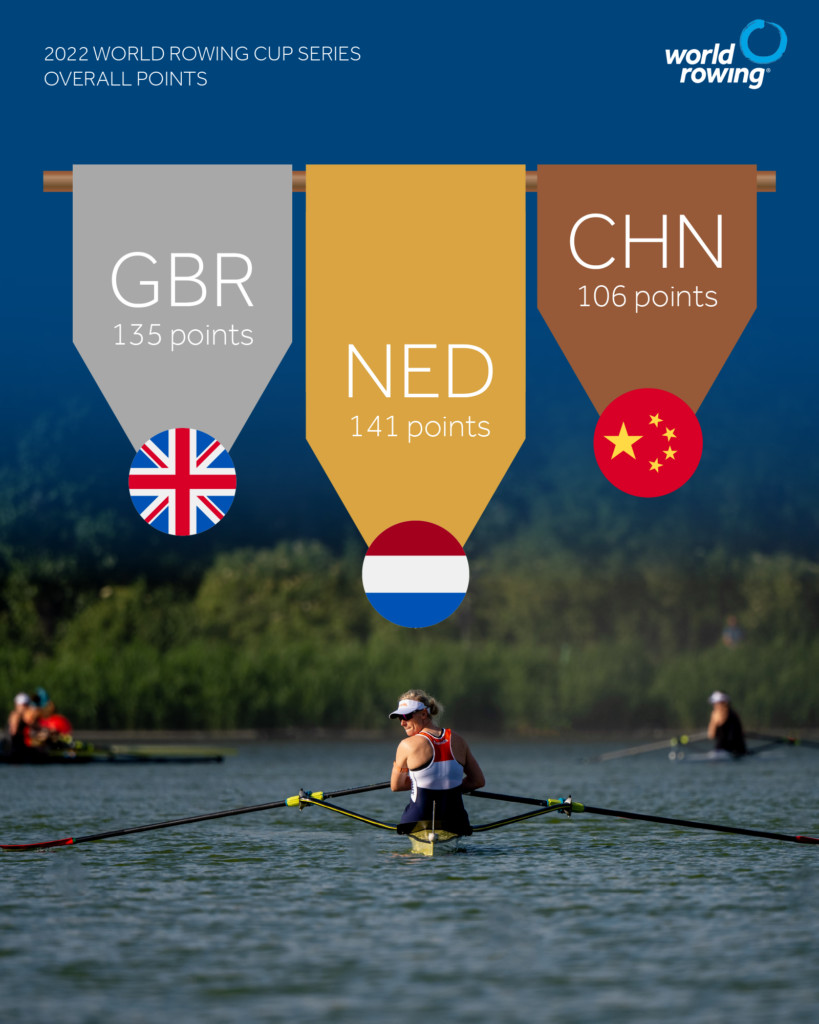
The 2023 World Rowing Cups will take place in Zagreb, Varese, and Lucerne.
2023 World Rowing Cup I – Zagreb, Croatia 5-7 May, 2023
2023 World Rowing Cup II – Varese, Italy 16-18 June, 2023
2023 World Rowing Cup III – Lucerne, Switzerland 7-9 July, 2023

